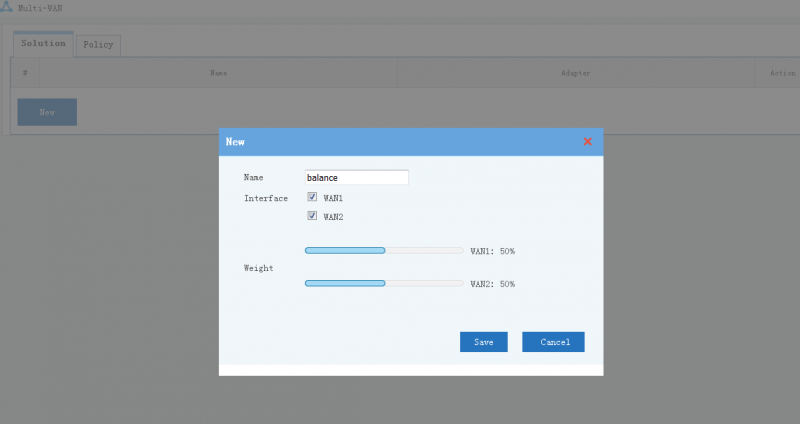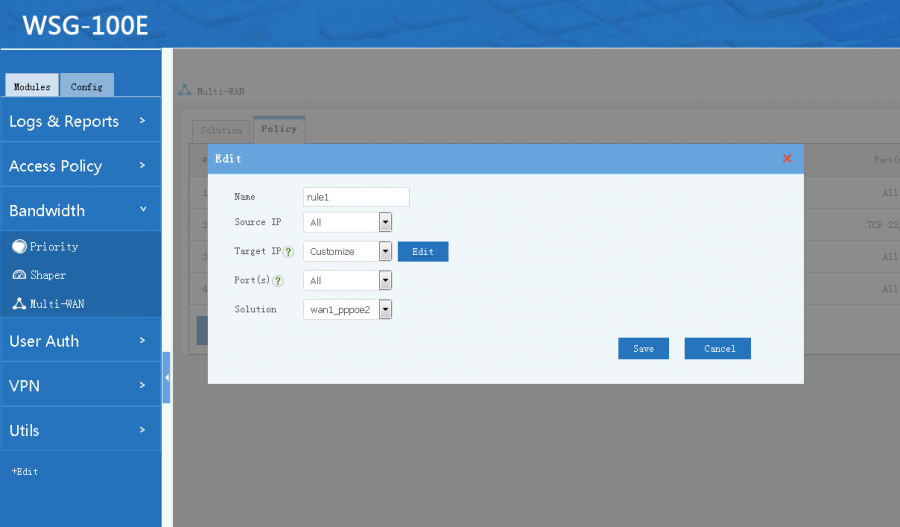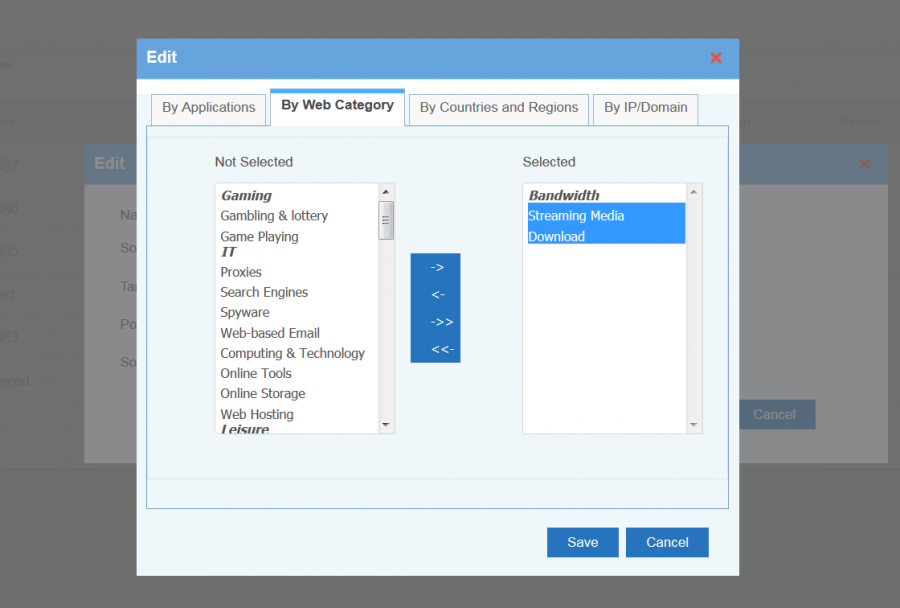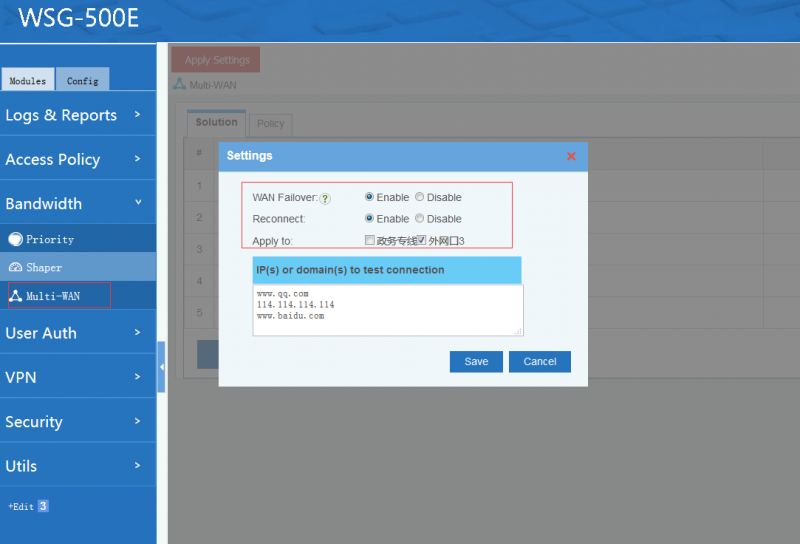Muti-WAN
From Wiki of WFilter NG Firewall
Contents |
1 Muti-WAN
Muti-WAN enables you to set load balancing and advanced routing when you have multiple WAN interfaces. This module has no use if you only have one WAN interface.
2 Solution
You need to define line solutions at first. For example:
- "WAN1 Only": set WAN1 as a dedicated line for business servers only.
- "WAN2 & WAN3 Balanced": for office users to share these two lines.
- "WAN3 Only": traffic to certain websites will be in this line.
You can add multiple line solutions, for each solution, you need to define the load balancing rank for every interface.
3 Policy
A solution won't work without policy. Policy is the rule to define which traffic picks which solution. Settings:
- Source: source ip address or ip range. You can define IP as "Any", "Single IP" or "IP Range".
- For "Single IP", a single ip or subnet is allowed(for example: 192.168.1.10 or 192.168.1.0/24).
- For "IP Range", you need to input an ip range.
- Target, target ip or domain
- For "Single IP" and "IP Range", the synax is the same as "Source".
- For "Customize", you can select traffic by "application type", "web categories", "countries and regions" or "custom IP or domains".
- Ports: target ports to be applied.
Please notice: Rules are always processed from the top of a list down, first match wins. You may drag the re-order icon to re-order rules.
4 WAN Failover
"WAN Failover" feature detects line availability, in case one line fails, interface load will be re-balanced.
- "WAN Failover" is disabled by default.
- If "reconnect" is enabled, WAN interfaces will be automatically restarted on failure.
- For "static ip" WAN interface, NGF will automatically ping WAN gateway to check.
- Use IP addresses for connection testing is recommended.




